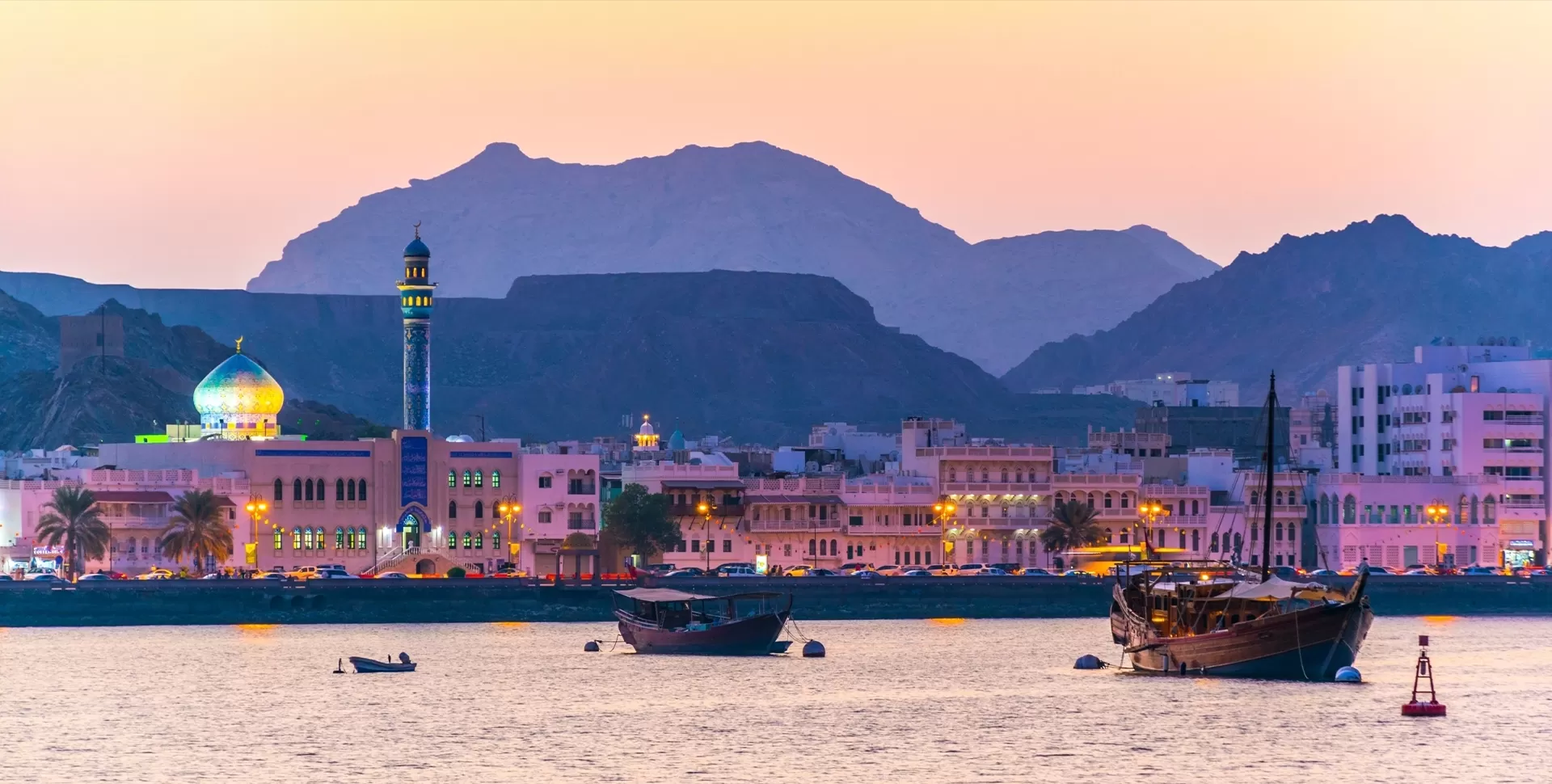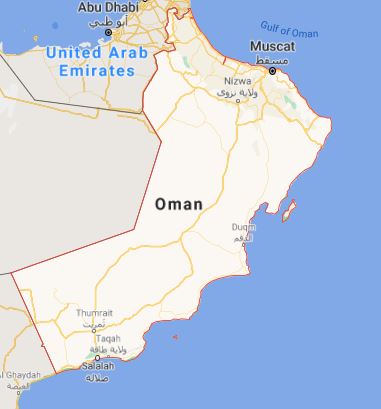
SULTANATE OF OMAN
Situated on the eastern edge of the Arabian Peninsula, the Sultanate of Oman is bordered by the Kingdom of Saudi Arabia to the West, and the Republic of Yemen to the South. The United Arab Emirates lies on the North West, and to the East lies the Arabian Sea and the Gulf of Oman.
The country benefits from a rich history, to which a number of archaeological treasures still stand in testament. Many civilizations have thrived in Oman throughout the ages as also its numerous historic and cultural attractions.
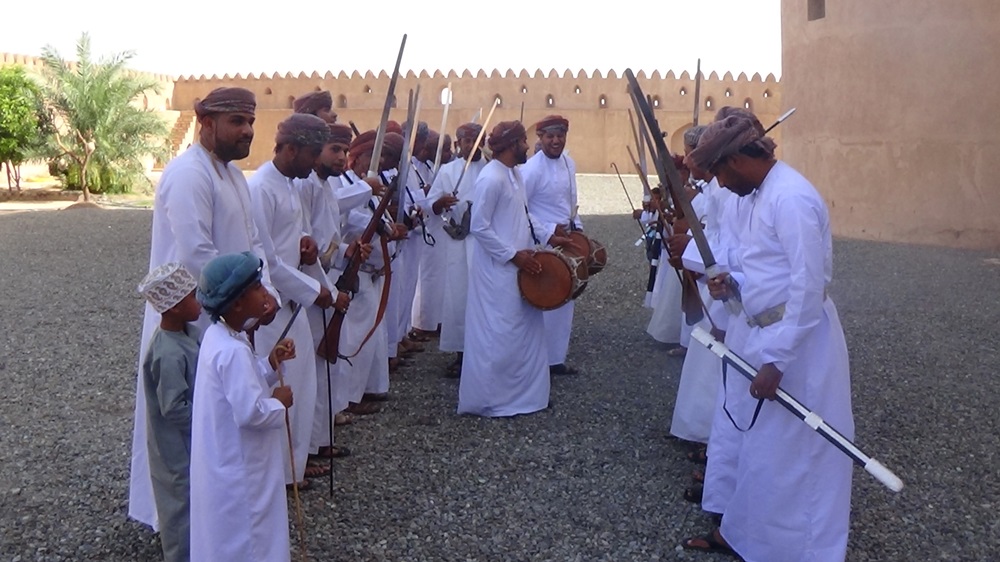
GENERAL INFORMATION:
• Population: 4.8 million
• Official Language: Arabic
• Other Spoken Languages: English, Baluchi, Urdu, Indian dialects
• Religion: Ibadhi Muslim 75%, Sunni Muslim, Shi’a Muslim, Hindu
• Area: 309,500 sqkm
• Coastline: 2092 km
• Climate: dry desert; hot, humid along coast; hot, dry interior; strong southwest summer monsoon (May to September) in far south
• Capital: Muscat
• Government Type: Monarchy
• National Day: 18 November (Birthday of Sultan Qaboos)
• Local Time: GMT + 4 hours
• Day Off: Friday
• Official Holidays: National Day is on 18th November every year although National Day holidays are usually taken the week after. Dates vary for the rest of the official holidays as they follow the lunar year. Eid Al-Fitr (1st Shawal), Eid Al-Adha (10th Dhul-Hijja), Islamic New Year around 1st Muharram. The Prophet Mohammed’s birthday (12th Rabi Al Awal), Ascension Day (27th Rajab). Local newspapers announce the actual dates of holidays as they occur
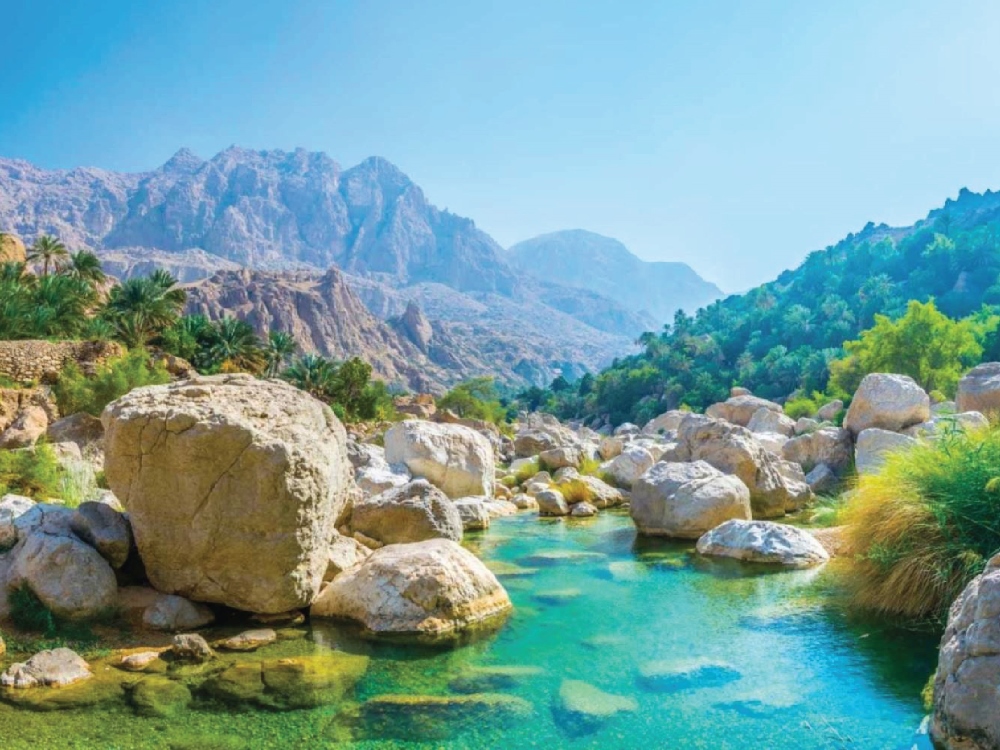
PRACTICAL INFORMATION:
• Money. Oman’s unit of currency is the Omani Rial, divided into 1000 Baizas. Notes come in denominations of Rials 50, 20, 10, 5, 1, 1/2 and 1/4, 200 and 100 Baiza notes are also available. One Rial is equivalent to approximately US$ 2.6
• Payment cards: All major credit cards are accepted in Oman, including Visa, MasterCard, American Express, and Diners Club etc.
• Health. Hospitals, pharmacies and health clinics are available throughout Oman. Modern hospitals with state-of-the-art equipment can handle any kind of emergency. Most hotels have medical help available. Doctors are just a phone call away.
• Alcohol. Alcohol is served only in hotels and licensed restaurants and clubs. Drinking alcohol in public is strictly prohibited. It is also illegal to carry alcohol in the car. Drinking and driving is heavily penalized.
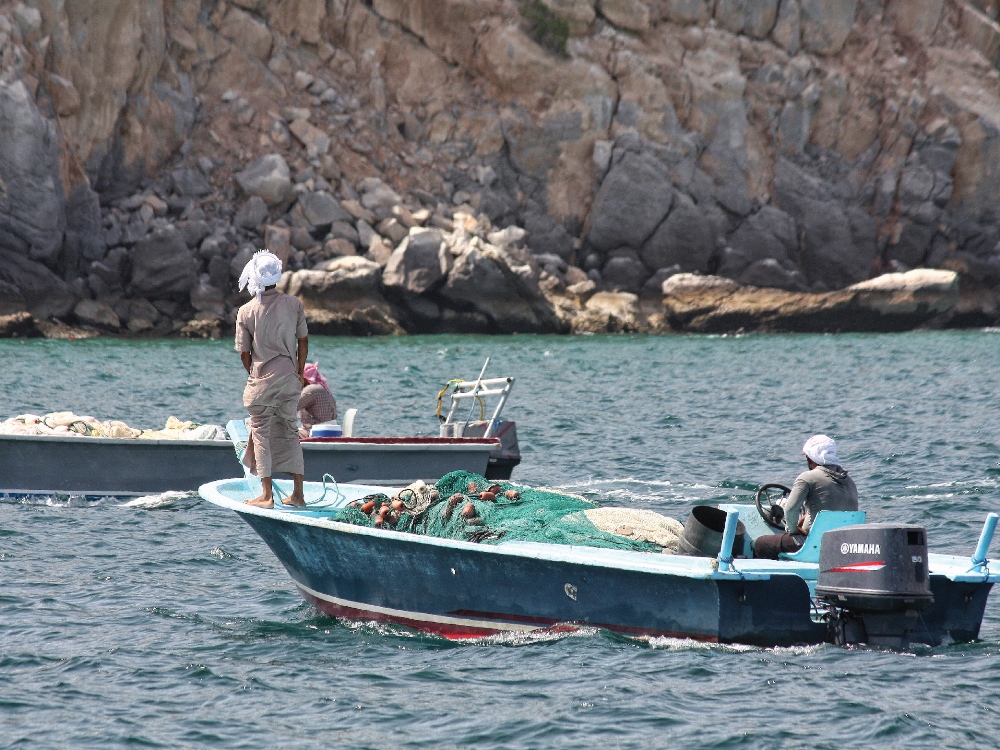
• Languages. Arabic is the official language, but English is widely spoken. German and French are spoken by hotel staff in addition to Balushi, Urdu and Indian dialects.
• Photography. Oman is a photographer’s delight. Photographers will find an enormous choice of subjects in the
Sultanate. However, photographing at the border or at military installations and embassies is not permitted. It is considered non-customary to photograph Muslim women. Please ask for permission before taking photographs of people and their property. Always observe ‘No Photography’ signs.
• Telephone. Telephone cards are readily available from shops and supermarkets. International telephone calls are cheaper during late evening till early morning (check for local time of country) and the whole day on Fridays and Public Holidays. All local telephone booths can be used for international dialing. No collect calls are possible in Oman. Oman has an extensive GSM network. Visitors can avoid roaming charges by purchasing a prepaid HAYYAK SIM card at Muscat airport or at Omantel counters.
• Internet. Internet service is available in Cyber Cafes and major hotels.
• Electricity. The electrical system is based on 220 volts – 240 volts, 50 Hz with 3-pin British type plugs. US-made electrical appliances may require an adaptor.
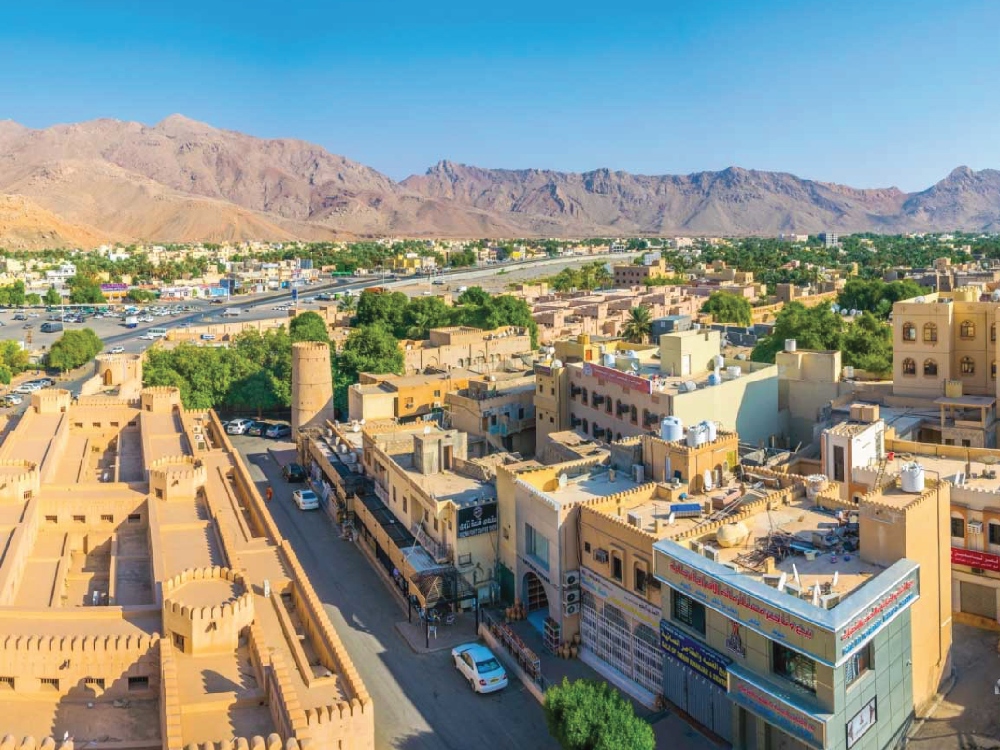
• Transportation. Buses travel throughout the country. The main bus station is in Ruwi, off Al Jama’a Street, where a timetable is posted. Taxis are plentiful; orange and white saloon cars or mini-buses with an orange light on the front. Taxi fares are reasonable and are a fixed rate. The mini-buses are shared taxis and the rate is extremely cheap. Ask for the fare before boarding. Some of them might not be air-conditioned. Driving – Highways within Muscat and linking major towns make driving a pleasure in Oman. Vehicles are driven on the right side of the road, so left hand drives are used. The maximum speed limit on open road is 120 km per hour. Seat belts are compulsory. Residents require a valid Omani license but visitors can use an International license. Residents of Britain may use their British license. Always carry your documentation with you as all accidents have to be reported to the police.
• Business Days. All Government offices are closed on Friday & Saturday. The private sector companies work from Saturday through Thursday from 8.00 am till 1.00 pm and from 4.00 pm till 7.00 pm. Some work half day on Thursdays but Friday is a public holiday in Oman. As for the banks, they open from Saturday through Wednesday from 8.00 am to 12 pm and Thursday from 8.00 am to 11.30 am
OUR DESTINATIONS IN OMAN
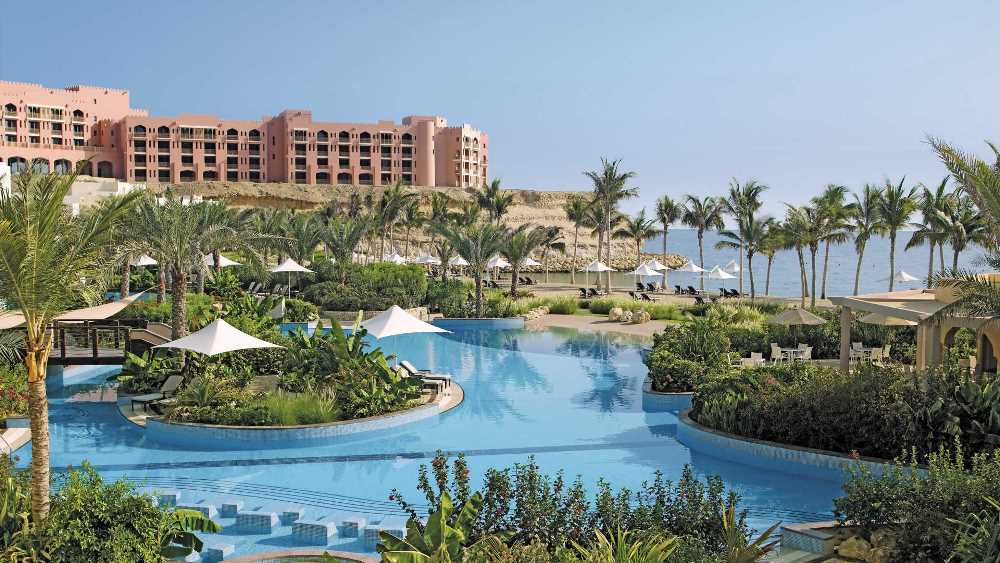
HOTELS IN OMAN
Muscat is right at the top of the list as it’s the capital city of Oman and it is the seat of most of the country’s considerable wealth. This means that the hotels in Muscat are some of the most opulent in the World.
As far as choosing a hotel, you really are spoilt for choice, as Muscat has several hotel districts that will not disappoint. However, as Muscat is on the Persian Gulf, it is definitely a missed opportunity if you don’t choose a hotel by the harbour. For this reason, Muttrah’s Corniche is one of the most popular hotel districts.
For a change from Muscat’s cityscape, you may like to stay in Salalah’s beach resorts. Salalah is a much more peaceful city than Muscat, so it’s ideal if you’re looking for the perfect beach holiday and you’d like to choose somewhere outside of mainland Europe’s overcrowded beaches. Salalah has some of the most beautiful white-sand beaches in all of Oman and its hotel resorts are very luxurious.

